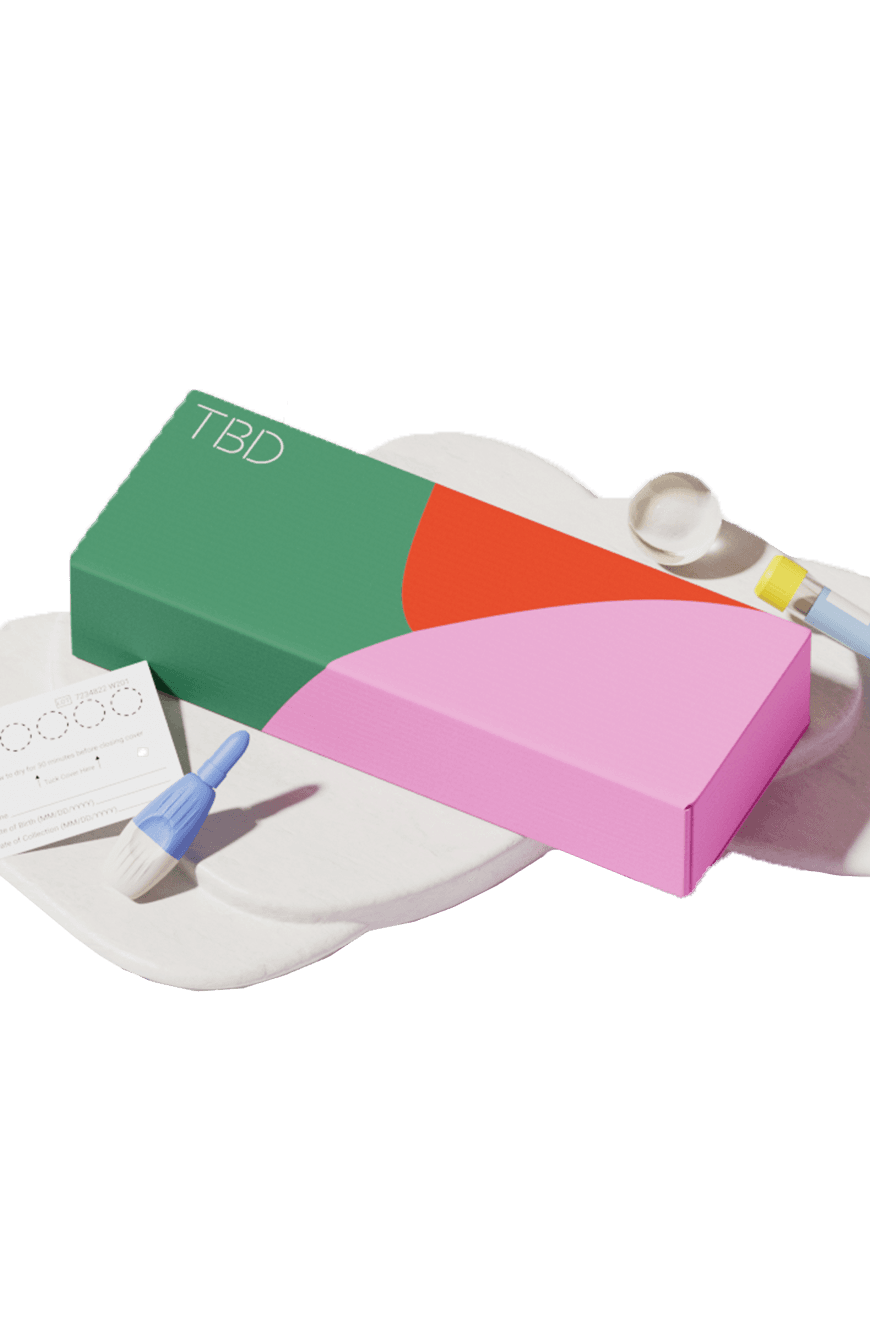| TBD Panels | 3-Panel STD Test | 9-Panel STD Test | 5-Panel STD Test | 3 Site: Oral, Rectal, Genital |
|---|---|---|---|---|
| Chlamydia |  |  |  |  |
| Gonorrhea |  |  |  |  |
| Trichomoniasis |  |  |  | |
| HIV (Ag/Ab) |  |  | ||
| Syphilis |  |  | ||
| Hepatitis B & C |  | |||
| Mycoplasma Genitalium |  | |||
| Herpes I / II |  |

- 8 E Charleston Blvd
- Las Vegas, NV 89104
- Tues and Fri
- 11 AM – 3 PM
- Contact us:
- 702-909-0554
- hello@tbd.health

PAY IT FORWARD
Feel good by contributing – help others to gain clarity on their sexual health. Note: TBD Health Inc. is not a non-profit.
| TBD Panels | 3-Panel STD Test | 9-Panel STD Test | 5-Panel STD Test | 3 Site: Oral, Rectal, Genital |
|---|---|---|---|---|
| Chlamydia |  |  |  |  |
| Gonorrhea |  |  |  |  |
| Trichomoniasis |  |  |  | |
| HIV (Ag/Ab) |  |  | ||
| Syphilis |  |  | ||
| Hepatitis B & C |  | |||
| Mycoplasma Genitalium |  | |||
| Herpes I / II |  |

Interview with: Adrienne Ton, Nurse Practitioner
Q: I’ve been dating a lot in the past few years. I tested negative for everything last time I was checked a year or two ago, so I think I’m fine. But how often should I be getting tested? More? Less? Idk!
A: The short answer, it depends on the situation - but I typically recommend _at least _ annually for folks who are sexually active and who are not in monogamous relationships. For people who have multiple partners in a year, testing with new partners or testing as frequently as every 3 months is a great way to stay proactive.
TBD Recommends: 9-Panel STD Test
We don’t have any strict guidelines or hard-and-fast rules about how frequently to test for STIs because everyone’s sex lives are so different. The CDC does have some general recommendations which typically recommend things like:
- get tested at least once in your lifetime for HIV and Hepatitis C
- get screened for gonorrhea and chlamydia annually when you’re under 25
- get more comprehensive testing (such as gonorrhea, chlamydia, HIV) every year if you are considered at higher risk - such as if you have multiple partners, work in the sex industry, or are a person with a penis who has a sex with a person with a penis.
As clinicians, we also often recommend more comprehensive or frequent screening than that.
BUT the good news is TBD makes getting tested easier than ever with at-home STI testing kits!
Why more frequently? A lot of people have different sex lives so it’s good to be cautious. We also believe in the power of early screening in helping you get treatment before long-term problems can develop and/or before infections get spread to others. There are lots of benefits of STI screening that usually outweigh the risks/downsides of testing (like a needle poke, maybe some urine in a cup or a swab).
When thinking about sexually transmitted infections (STI) screenings, we usually make recommendations for screening frequency based on your risk of being exposed to different sexually transmitted infections. More risk of exposure = more recommendations for testing. You might be more likely to encounter an STI based on the number or types of partners you have, the number or types of partners your partner(s) have, where you live, and the types of sex you have.
Again, screening frequency really depends on your situation - but some general guidelines to consider are the following:
- Annual screening for people who are sexually active and not in monogamous relationships
- More frequent screening if you’re using or have used injection drugs
- For folks who are sexually active with multiple partners or who are on treatments like HIV PREP, screening as frequently as every 3 months can be a useful tool to help you and your partner(s) feel safe and healthy.
- Consider comprehensive testing - I often hear people say they were tested for “everything”, when in fact they were tested for a few STIs only. It’s important to know what you’re tested for and why. Comprehensive testing might mean more STIs to check based on what the trends are locally. For example, syphilis is on the rise so I routinely recommend screening for this. Comprehensive testing might also mean checking multiple areas of the body for potential infection depending on what kind of sex you’ve had, such as testing for gonorrhea or chlamydia of the mouth/throat or rectum.
- If you’re having symptoms or if you think you’ve been exposed to a STI from a partner, it’s very important to make an appointment at a TBD care hub and get tested as soon as possible.
TBD Recommends: Take our sexual health questionnaire
At the end of the day, there is no 100%, one-size-fits-all screening frequency recommendation for STIs. Screening is a powerful tool to help you maintain your sexual health and wellness, and you can utilize it based on what makes the most sense for your situation. At minimum, aim for once a year, especially if you have any new partner(s). If you need a little more guidance, you can always talk to a trusted healthcare provider or set up a consultation with a TBD clinician.
But chances are, if you’re still reading this and haven’t tested recently or can’t really remember when you were last tested, it’s probably time to get tested!
--- Adrienne Ton, Nurse Practitioner
This article provides information about sexual health, healthcare and/or related subjects. The blog content and any linked materials herein are not intended to be, and should not be construed as a substitute for, medical or healthcare advice, diagnosis or treatment. Any reader or person with a medical concern should consult with an appropriately-licensed physician or other healthcare provider. This blog is provided purely for informational purposes. The views expressed herein are not sponsored by and do not represent the opinions of TBD Health Inc.
Email us and a team member will get back to you within 24 hours. We’re also available via call or text at +1 (702) 909-0554
Sign up below to get 10% off
By providing my email address, I agree to receive email with marketing communications from TBD Health including news, promotions and exclusive offers. I understand that I can opt out at any time by using unsubscribe links. Visit our Terms of Service or Privacy Policy for more information.






